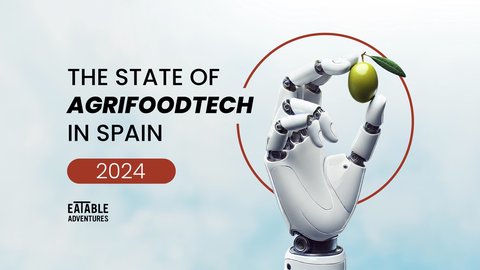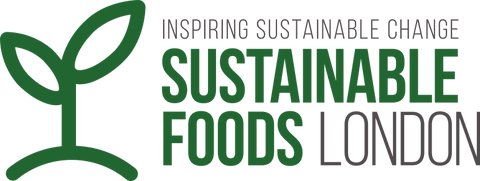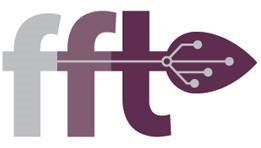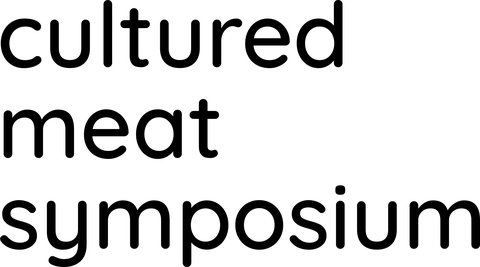Spanish Agri-Food-Tech Ecosystem Secures €179 Million in 2024 Investments
November 28, 2024 - 4 min read
Investment in the sector drops by 20%, reflecting the global slowdown after the 2021-2022 boom, while the Spanish ecosystem consolidates with disruptive technologies like AI and the emergence of a new category: “Food as Medicine”.
Madrid, November 28, 2024. Eatable Adventures has unveiled the results of its annual report, “The State of Agrifoodtech in Spain 2024”. This comprehensive analysis examines the characteristics and evolution of this ever-changing sector, which, despite global economic uncertainty, continues to stand out for its innovation and collaborative spirit.
In 2024, economic instability and regulatory challenges have created a volatile environment affecting startups and initiatives across the agrifood value chain. However, the Spanish sector remains dynamic, showing signs of consolidation driven by growing consumer demand, exploration of new business opportunities, and technological innovation.
This year, the Spanish Agrifoodtech ecosystem experienced a 20.8% decrease in investment compared to 2023, amounting to €179 million. The majority of funding was concentrated in pre-seed and seed-stage startups.
This decline aligns with investment trends across Europe, where funding fell by 19% compared to the previous year. The slowdown follows the investment boom of 2021 and 2022, which was heavily concentrated in the Delivery and HoReCa (Hotel, Restaurant, Café) subsectors.
A consolidating ecosystem with strong female representation
According to the report, Spain’s Agrifoodtech ecosystem is home to 396 active startups. While the total number of startups decreased by 6% compared to 2023, the sector shows clear signs of consolidation. Employment in the ecosystem grew by 4.8%, reaching 4,822 workers, reflecting a shift toward a more sustainable and mature ecosystem characterized by stronger teams and greater professionalization.
Notably, female representation is gaining momentum. Women are present in the founding teams of 57% of startups, surpassing the national average in other tech sectors. Additionally, 62% of Agrifoodtech startups originate from professionals within the agrifood industry, providing a competitive edge through deeper understanding of sector dynamics, challenges, and opportunities.
Artificial Intelligence on the rise amid tech transfer challenges
The technological foundation of startups remains relatively stable, with 62% relying on in-house developed technology and 10% leveraging collaborative developments with external partners.
Among the most widely adopted technologies, artificial intelligence leads the way, employed by 44.4% of startups—a 50% increase compared to last year. Other key technologies include biotechnology (40.7%), SaaS (25%), specialized hardware (18.5%), and IoT (14.8%).
Despite this progress, the report highlights significant challenges in technology transfer. Only 15% of startups source their technology from universities or R&D centers, underscoring the need to strengthen these connections to maximize the sector’s innovation potential.
A new category emerges: “Food as Medicine”
One of the report’s key highlights is the emergence of the “Food as Medicine” category. Although it accounts for just 2% of startups, this segment is paving the way for industry innovation, driven by growing consumer demand for healthy, personalized foods. This trend is reflected in advancements in fortified foods, dietary supplements, and the development of novel drugs such as GLP-1 agonists.
Other categories remained stable compared to the previous year, with notable activity in New Foods, Agritech, Retail and HoReCa Technologies, Logistics and Delivery, and Kitchen Tech.
Challenge or Opportunity?
The sector faces significant hurdles, including a lack of strategic funding, regulatory uncertainty, and limited technology transfer. Nevertheless, the Spanish Agrifoodtech ecosystem demonstrates remarkable adaptability and resilience, as evidenced by the adoption of cutting-edge technologies, the strengthening of startup teams, and the creation of new industry categories.
“Spain’s leadership in Agrifoodtech depends not only on creating disruptive technologies but also on attracting foreign investment, fostering research in universities, and promoting public policies that drive innovation and technology transfer. By integrating emerging technologies such as artificial intelligence and other deep techs, Spain has a unique opportunity to build a robust, coordinated ecosystem that enhances the sustainability and competitiveness of its companies on a global scale. This challenge requires a collective effort to connect startups, corporations, governments, and investors, fostering open innovation and scalable technologies that position Spain as an international leader,” emphasized Mila Valcárcel, Managing Partner at Eatable Adventures.
For more details, download the full report.


















